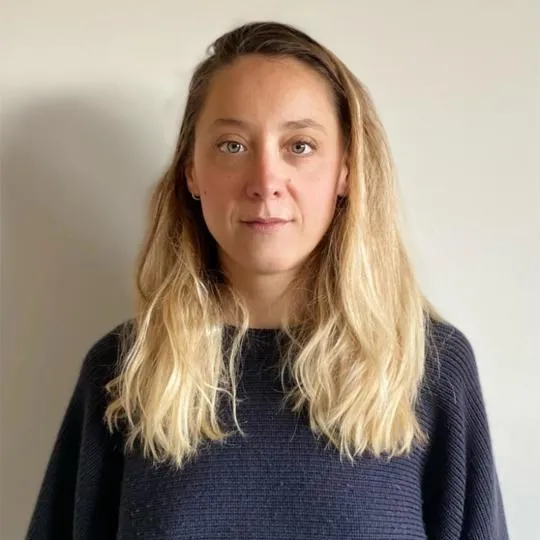New book highlighting co-production as more inclusive way to respond to the pandemic and develop more equitable health and social care.
Researchers in the Faculty of Nursing, Midwifery & Palliative Care have contributed to a new book, COVID-19 and Co-production in Health and Social Care Research, Policy and Practice. The book has been created by a diverse editorial team and set of contributors to illustrate how and why co-production can be a more inclusive way to respond to the pandemic and develop more equitable health and social care. The people behind the book have experiences as service users, activists, carers, and researchers.
The COVID-19 pandemic has exposed and exacerbated inequalities in societies. The groups most severely affected by the pandemic have so much to share from their lived experience. However, they seem to have largely been ignored in preparing for the pandemic, developing responses to it, and planning for a ‘new normal’ that is better than before. Innovative participatory and co-produced approaches to health and social care research, policy development, service design, and practice highlight the need to tackle health inequalities while offering ways to do so. These approaches can help to ensure this experience-based and often marginalised knowledge makes an important and unique contribution to decision-making.
This book addresses these issues and offers ways for developing inclusive, co-produced approaches to respond to health emergencies like the COVID-19 pandemic, where the search for fit-for-purpose solutions is especially critical. It also illustrates the important role co-production can play after the pandemic in ensuring health and social care is better and fairer than before. The book provides a platform to share marginalised perspectives and experiences.
The grave consequences of following the precedents set during this pandemic – in terms of morbidity, mortality, inequality, marginalisation, and ineffective policy – emphasise the urgency with which we must act to do things differently.
With this practical book, we wanted to illustrate why co-produced responses are valuable and how researchers, policymakers, practitioners, service users, patients, public contributors, communities, and activists can make this happen both during the pandemic and beyond.
Dr Oli Williams, Postdoctoral Research Fellow and editorial team member
In their chapters, authors explain their priorities for what needs to be done to address the issues affecting them and how groups and communities who are vulnerable, or have been marginalised or discriminated against can be better served by health and social care. There are also lots of examples of how groups have managed to swim against the tide by co-producing during the pandemic; often working together at a distance. The books highlight how we must go further in finding new and much more equitable ways of working with a diversity of individuals, groups, and communities.
In the Faculty, Dr Giulia Zoccatelli, Dr Amit Desai, Professor Glenn Robert co-authored a chapter with colleagues based on their findings from a King’s-based, NIHR-funded study exploring the work of local Healthwatch, England’s statutory organisation with responsibility for championing the views of citizens in the planning and provision of local health and social care services.
Their contribution draws on the data the study team collected in the first weeks of the COVID-19 epidemic to present an ethnographic account of how local Healthwatch reorganised their work in order to keep providing citizen voice into a system in crisis. By embracing new innovative strategies, including directly engaging local people through technology (e.g. video calls and WhatsApp) or helping with coordinating institutional responses to the pandemic, Healthwatch mobilised quickly to ensure local peoples’ experiences could still be heard. This allowed Healthwatch to address gaps in services and highlight how already-vulnerable and seldom-heard groups of people (e.g. people with learning disability, ethnic minorities, pregnant women) were being adversely affected by a pandemic response which produced inequitable outcomes.
We were happy to contribute to this important book and to the debate it promises to raise about the long-term impact of the COVID-19 epidemic in shaping the ways in which decisions about health and care are taken locally. We think a careful reflection about these issues will be crucial post pandemic to ensure that public health actions and planning lead to equitable outcomes for all.
Dr Giulia Zoccatelli, Research Fellow and chapter co-author
The editorial team (listed alphabetically) is:
- Peter Beresford, University of East Anglia / Shaping Our Lives/ NIHR ARC East of England
- Michelle Farr, NIHR ARC West / University of Bristol
- Gary Hickey, University of Brighton / University of Southampton
- Meerat Kaur, NIHR Centre for Engagement and Dissemination
- Josephine Ocloo, King’s College London / NIHR ARC South London
- Doreen Tembo, University of Southampton
- Oli Williams, King’s College London / THIS Institute
More than 100 people contributed to the book, which is available for free as an open access e-book in two volumes, published as part of Policy Press’s Rapid Responses pandemic series. Policy Press are a not-for-profit publisher and publish work that seeks to understand social problems, promotes social change, and informs policy and practice. Open access funding was provided by the Health Foundation.
The book is being launched at a special event on 22 June, where the authors will give a Q&A.




